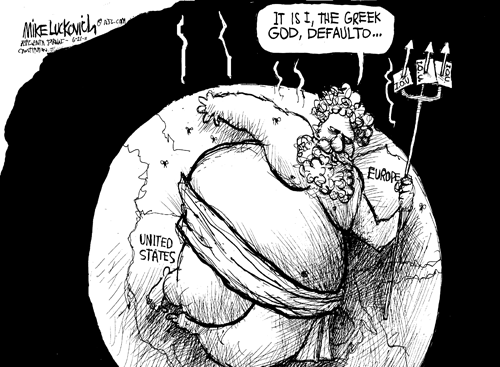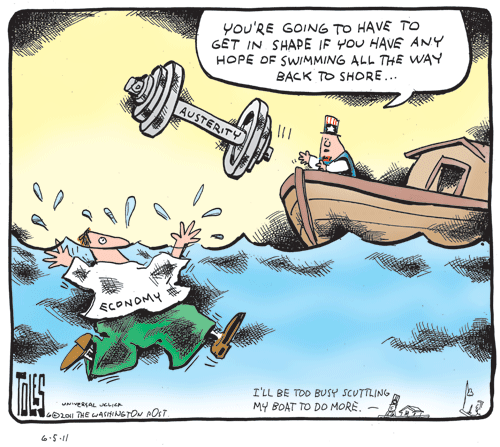Up Date: The President’s speech with a link to the transcript is below. As expected, not big enough or fast enough nor will all the troops ever be withdrawn.
Only 10,000 troops from the last surge of 33,000 are to be withdrawn from Afghanistan by the end of 2012 the end of next summer. Seriously, another 18 15 months. There are 100,000 service men and women serving in Afghanistan alone. Leaving the money aside, what about the them? How many more killed, maimed and psychologically scarred? For what? A war that is not winnable where the US is doing more harm than good and is not wanted. I haven’t even mentioned the cost and suffering of Afghan civilians.
No, Mr. Obama, this is not good enough.
Cost of Wars a Rising Issue as Obama Weighs Troop Levels
WASHINGTON – President Obama will talk about troop numbers in Afghanistan when he makes a prime-time speech from the White House on Wednesday night. But behind his words will be an acute awareness of what $1.3 trillion in spending on two wars in the past decade has meant at home: a ballooning budget deficit and a soaring national debt at a time when the economy is still struggling to get back on its feet.
I’m not alone in my anger and frustration with the president’s policy. Since last year the vast majority of Americans are opposed to the war in Afghanistan. That number is now two thirds, two of every three Americans.
A new poll from the Washington Post shows American have turned decisively against our military engagement in Afghanistan. Nearly two-thirds oppose the war, and even larger percentage believes in a considerable withdrawal from the region
US Mayors meeting last week in San Francisco called for the president to “bring the war dollars home” and invest in America.
That resolution will now become official policy of the mayors’ organization — a small symbol of growing opposition to the war in Afghanistan. The mayors are asking that money spent on wars abroad be used in the United States to develop cities and towns. The last time the conference approved a resolution like this was during the Vietnam War.
Nor will there be any discussion about the 865 foreign bases that the US has scattered around the world that eat up precious tax dollars:
President Obama may claim he’s got to go slow in drawing down U.S. forces fighting in Afghanistan but what’s his excuse for keeping open 268 U.S. bases in Germany? Is he expecting an attack by the Red Army? There are folks living well on those 268 bases at public expense as well as the military contractors supplying them.
No other nation begins to operate even a tiny fraction of the 865-plus bases the Pentagon runs overseas to, depending on your viewpoint, (a) protect America from dangerous potential enemies who are lurking everywhere, or (b) to dominate the rest of the world. And since 95% of all overseas bases located in somebody else’s country are operated by the USA, millions of people suspect (b) is the answer; indeed, foreigners fear Uncle Sam might subjugate them.
Democrats in congress are getting impatient as well
On Tuesday, Sen. Joe Manchin (D-W.Va.), one of the most conservative Democrats in the chamber, sent Obama a letter urging a change of course in the war and an acceleration of the withdrawal of U.S. troops.
“After 10 years and $443 billion, I believe it is time [to] focus our resources on rebuilding America, not on rebuilding Afghanistan,” he wrote. “It is time for the Afghan people to decide their destiny and take responsibility for governing themselves. … It is my hope that by redefining the mission in Afghanistan away from nation-building, you will pursue significant troop reductions immediately and end the scope of our current mission well before the 2014 deadline.”
Senate Armed Services Committee Chairman Carl Levin (D-MI) is calling for a minimum withdrawal of 15,000 troops:
“In my judgment, a minimum of 15,000 reduction in troops would be needed for this to be a significant reduction, and since the president has committed himself a few months ago to a significant reduction, I think that’s what will happen,” Levin told reporters on Capitol Hill on Tuesday.
When asked how he came up with that number, Levin replied, “It’s based on what would it take to let the Afghans know the significance of the importance of shifting the responsibility — the principal responsibility to them for the security of their own country.”
Americans and Afghans will be paying dearly for years even after the last service person is gone from both Afghanistan and Iraq. This cannot happen fast enough for all our sakes.
Up Date: Obama spoke tonight about the troop withdrawal. 10,000 troops will leave by the end of this year. By the end summer in 2012, the other 23,000 will have left. By 2014, all combat troops will have departed but a residual force of about 25,000 will remain, forever and ever. The rest was pure political rhetoric. You can read the transcript to spare yourself the vision of another lie.

 What
What 
 While CEO’s are rolling in more money than any average workers could imagine in a lifetime, raising their taxes and closing the tax loop holes that allow then to pay even less or, in some instances, nothing at all. According to a
While CEO’s are rolling in more money than any average workers could imagine in a lifetime, raising their taxes and closing the tax loop holes that allow then to pay even less or, in some instances, nothing at all. According to a  On this day in 1944,
On this day in 1944,
Recent Comments